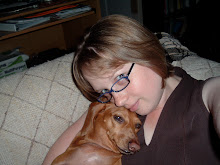I finished reading
Sin in the Second City and was saddened by the ending.
The Everleigh Sisters, the main focus of the book, were ultimately forced out of business. A little irony, however: they moved to the Upper West Side in New York and posed as the Lester Sisters and formed a literary circle among their high class neighbors.
The Levee District in Chicago was shut down eventually, putting an end to segregated vice districts. The reformers that were so set against white slavery changed their tune and started to regard prostitutes of all types as moral stains on society, rather than victims of circumstances.
The most positive result of all the hullaballoo surrounding red-light districts in cities, namely Chicago, is that wages in department stores, etc., were investigated and several states passed a minimum wage requirement, since many girls who turned to prostitution did so to stave off poverty.
An amusing snatch from the book:
After the Levee was closed, the prostitutes had no where to go and were encouraged by madams and pimps to flood the rest of the city. Here's a quote from one of these episodes:
"At 35th and Michigan, six prostitutes coordinated the lighting of cigarettes with theatrical aplomb, moving one terrified passerby to call the police" (282).
And, later, Abbott discusses the flood of films and plays that dealt with the topic of white slavery and debauchery, and quotes a journal from 1913, "A wave of sex hysteria and sex discussion seems to have invaded this country. Our former reticence on matters of sex is giving way to a frankness that would even startle Paris" (290).
Considering that my last few months have been spent researching 20th Century American literature, reading Edna St. Vincent Millay, and studying up on the New Woman and female sexuality, all I can say to this 1913 reporter is that he better hang onto his hat because much more frankness is headed his way.
As I consider the place we inhabit now, in regards to openness concerning sexuality, I find it unfortunate that the frankness that began in the early 1900's and continued through the '20's and '30's reverted to the tight-lipped closed-mouthed attitudes that developed after World War II. A return to the reticence that the Victorians practiced resulted from the desire of establishing some kind of stability after yet another major war, yet we are still unable to get away from it. For proof, just say the word "penis" or "vagina" or even "sex" and see how many people are embarrassed or blush out of reflex.
I'm on a tangent now. I strongly recommend Sin in the Second City. For more on female sexuality and the New Woman Marion Meade's Bobbed Hair and Bathtub Gin: Writers Running Wild in the Twenties offers a look at the lives of Millay, Dorothy Parker, Edna Ferber, and Zelda Fitzgerald. I've read the first couple chapters, and plan to finish reading it this summer, so I'll write on it later.
For now, on to the next book.
